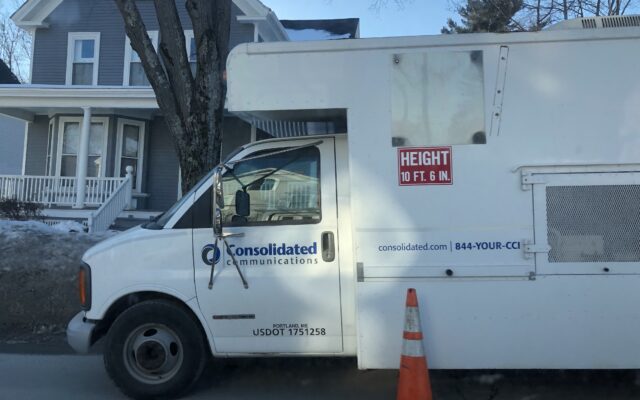
Major Maine internet provider has ambitious plans to improve lagging connections
By Lori Valigra, Bangor Daily News Staff
One of Maine’s largest internet companies plans to install fast fiber internet to 11,500 rural customers starting early next year and make major upgrades to its existing network, which could significantly improve the state’s lagging broadband infrastructure.
The moves from Consolidated Communications come as the state sharpens its focus on broadband. The coronavirus pandemic amplified the infrastructure gaps as workers and students struggled with slow internet at home. Broadband was a key element of President Joe Biden’s $1.9 trillion stimulus, with Maine expecting to receive about $100 million for broadband and more potentially on the way in an infrastructure package. More federal money will go to four companies including Consolidated Communications as part of a $71.2 million federal auction grant to expand broadband to rural Maine.
Consolidated Communications plans to add fiber in selected locations in Brownville, Dexter, Dover-Foxcroft, Greenville, Guilford, Milo and Monson.
Consolidated’s three-part strategy involves that money, its own investment in network upgrades and direct relationships with Maine towns, Mike Shultz, the company’s senior vice president of regulatory and public policy, said. The company operates in 23 states and also has upgrade plans in New Hampshire and Vermont.
“The network needs to be modernized,” he said. “We want to bring the next generation of technology to northern New England and get the network future-proofed so we can provide all kinds of services for what Mainers need.”
Consolidated’s internet service area currently covers 55 percent of the state. The company does not disclose customer numbers, but said its network passes 687,000 homes and businesses that could potentially connect to it. The company likely has about the same number of customers as the other large internet service provider here, cable company Spectrum, at around 400,000, said Peggy Schaffer, executive director of the ConnectMaine Authority, which conducts internet planning for the state.
Out of the $71.2 million the four companies won to bring high-speed broadband to almost 28,000 locations in rural Maine, Consolidated will get $31 million to bring fiber cable to the homes of 11,500 customers and start building it out in early 2022.
There are upward of 72,000 potential customers the new fiber will pass, including those outside of the area targeted by the auction money, Shultz said. That project is set to start in the first quarter of next year, after the FCC approves the details, and it should be done within six years, he said.
The current FCC basic standard for broadband is 25 megabits per second for downloads and 3 megabits per second for uploads. Consolidated’s new fiber network will have 1 gigabit per second upload and download speeds, Shultz said. A gigabit connection can deliver 1,000 times more bits per second as a megabit.
Most of Consolidated’s current network, some 95 percent, uses DSL technology, which operates over copper telephone wires, though it has some fiber installed. Customers have criticized DSL service for frequent interruptions, making it difficult for some to participate in video calls, but in many cases it is the fastest or only technology available in their area now. Many of the connections run over the copper telephone wire inherited when it bought FairPoint Communications in July 2017. Consolidated said 100 megabits per second DSL service costs about $62 per month in Maine and 1 gigabit per second of fiber costs $70.
Consolidated has already started upgrading DSL connections to fiber in what Shultz said will encompass a wide swath of the state, including small towns and bigger cities such as Portland, Augusta, Lewiston and Bangor, that will pass by 450,000 customers. The company serves many rural areas, so installing fiber near cities will put it in more direct competition with cable TV companies including Spectrum, GWI and other internet service providers.
Shultz called the upgrades “transformational,” but declined to give the investment amount. He said the upgrades funded by the company’s own investment will be completed over five years. The fiber will be installed primarily over existing DSL wire on telephone poles.
A third part of its expansion is to partner directly with towns to improve their infrastructure. So far, the towns of Stonington, Eastbrook and Long Island are collaborating with the company. Shultz said the project in Long Island, off Portland, will connect more than 400 homes and businesses to 1 gigabit per second broadband using bond funding.
Schaffer of ConnectMaine said Consolidated’s plans, including the federal funding, should have “a significant impact on improving service” in Maine.
“This goes for the ‘served,’ more urban areas, as well as some of the more rural areas,” she said. “As they build out to more of their footprint with fiber, service will improve for lots of people.”